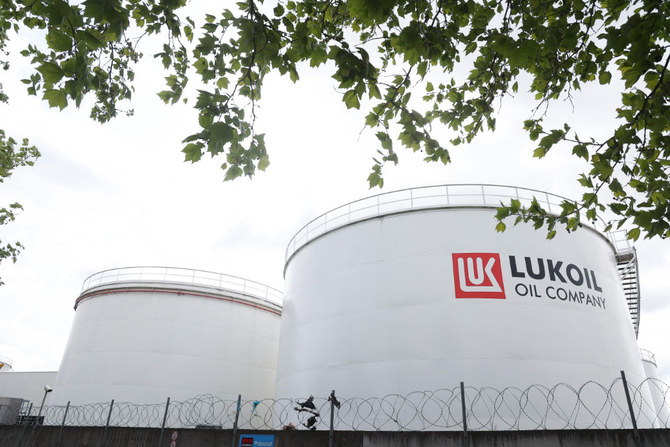When it comes to energy, hope is never a strategy

https://arab.news/4gaq9
Last week saw the first solid indication of the impact on Russia’s oil output from self-imposed embargoes by some of its traditional customers. April production was estimated to have fallen by about a million barrels per day. This was just a third of the initial projection that was made by the International Energy Agency, but the outlook suggests additional Russian output will be hit moving forward.
Though the EU has not ratified an embargo on the roughly 3.5 million barrels per day of crude oil and refined products it imports from Russia, our sense is that some portion of those flows will be sanctioned, even if it is on a phased-in basis.
Russia is the world’s second-largest oil exporter — ranked second to Saudi Arabia — and a key complication since the invasion of Ukraine is the lack of alternative supply for Russian energy. This fact seems to be lost on most observers for reasons that we cannot explain.
We have already discussed the math surrounding Russia’s oil — and natural gas — for global energy balances in previous Arab News articles, so will only say that the notion of those pushing for the embargo seems to suggest that there is an actual substitute for Russian energy. There is not.
Various macro-economic factors point toward a less robust rebound in demand this year, but the partial loss of Russian supply suggests the oil balance will see a net loss of supply. This means more of a draw on inventories than we initially forecast, which will further skew consensus forecasts.
If you are perhaps thinking that emergency oil inventory sales already announced by Organization for Economic Co-operation and Development nations will counter the effects of shut-in Russian supply, our analyzes suggest this will not be the case.
While this may sound overly technical, when it comes to oil inventories we break the data down into commercial stocks and emergency stocks. It is the change in commercial stocks that show a high degree of correlation to changes in oil prices. Our work suggests that this year will see a large draw on commercial stocks, which is likely to heap further upward pressure on oil prices.
Regardless of virtue signaling around green initiatives, the fact is oil will remain a critical segment of the global energy mix for the forecastable future. Put another way, petroleum will continue to be a critical and strategic commodity.
US lawmakers who have attempted to crucify oil executives for high gasoline prices speaks to a long-running tendency to fix the blame, rather than fix the problem. The lack of investment in sustainable production capacity and the canceling of needed infrastructure projects — such as the $9 billion Keystone pipeline between the US and Canada — point to shortsightedness and will not forestall bullish market pressures that will continue to unfold over the medium term.
• Michael Rothman is the president and founder of Cornerstone Analytics, a US-based consultancy focusing on macro-energy research. He has nearly 40 years of experience covering the global energy markets and has been attending OPEC meetings since 1986.










































